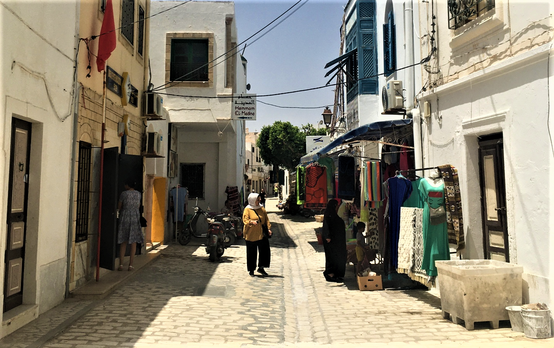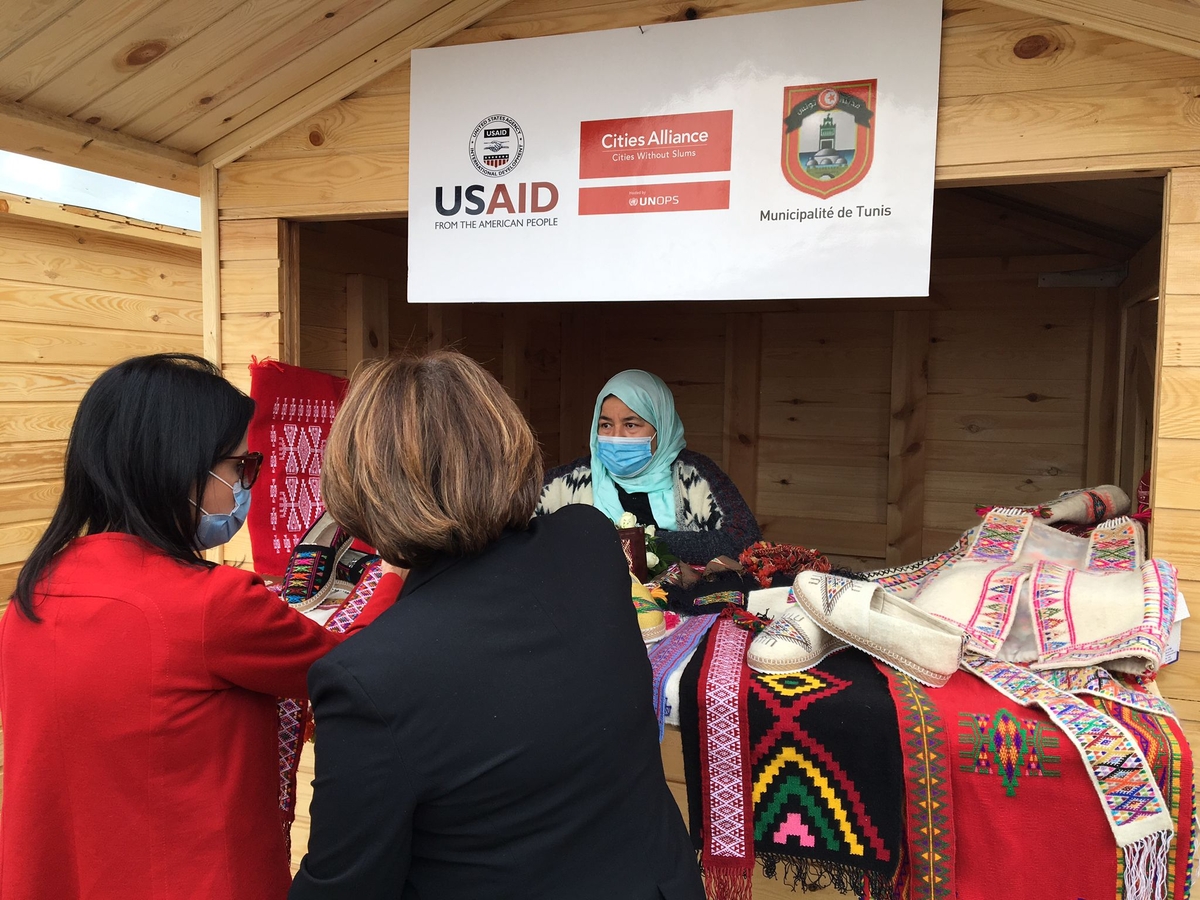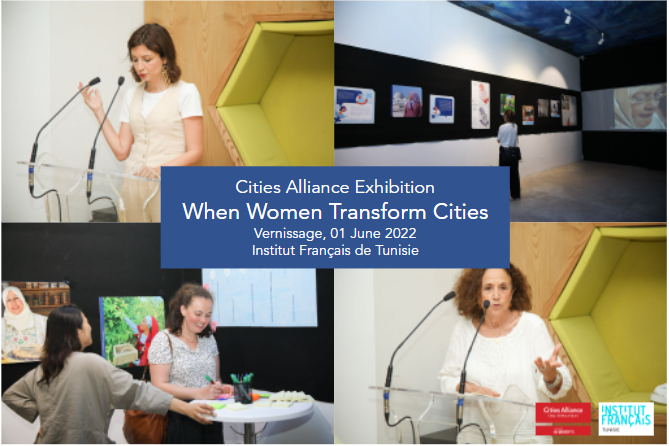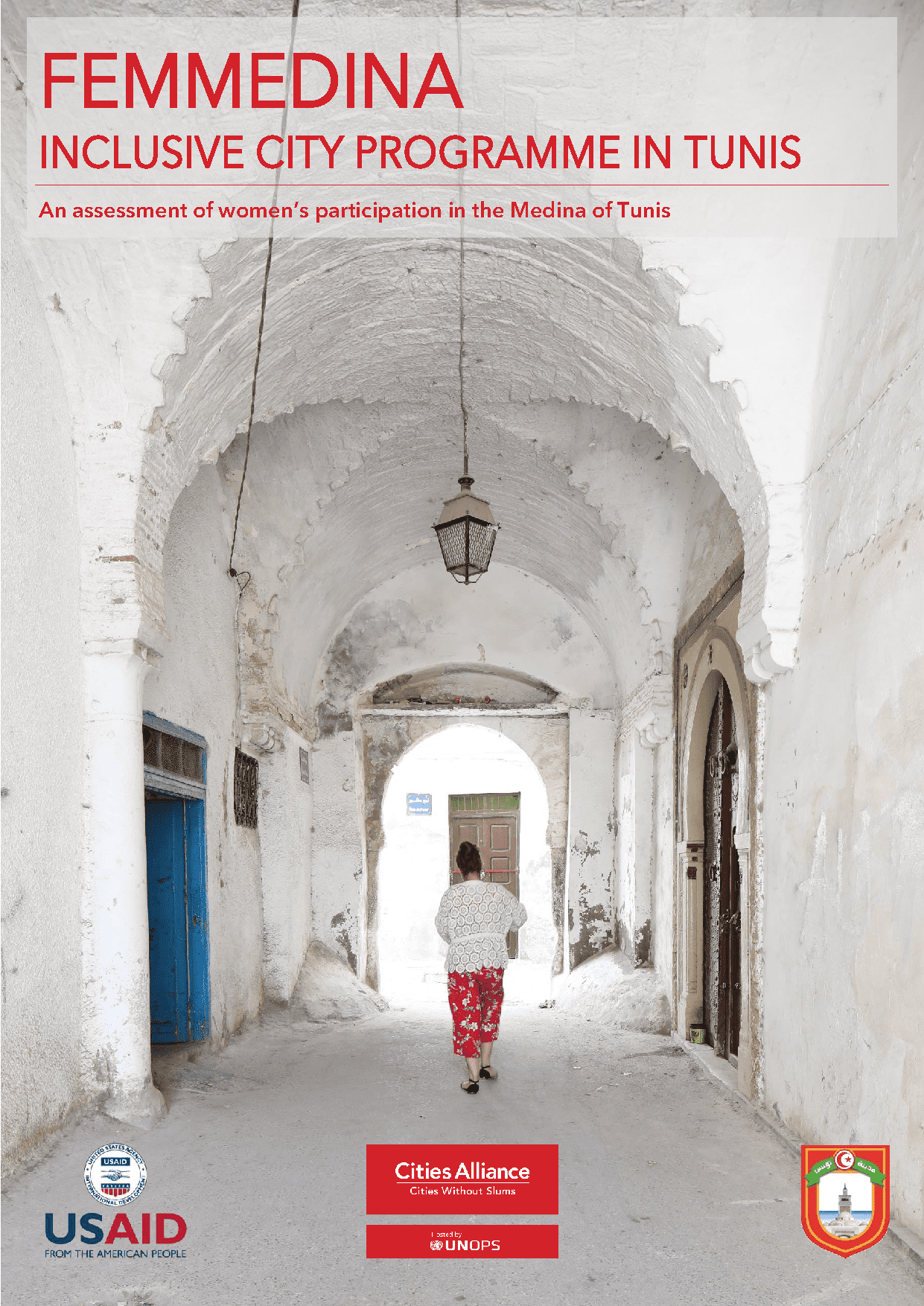On 23 May, representatives of Tunisian municipalities came together during an online discussion to exchange their experiences and priorities in planning for cities that are responsive to women's economic, social and cultural needs.
Promoting economic and social opportunities for citizens, while preserving the cultural traditions that shape and permeate the historic city centres, the Medinas, is a genuine challenge for local authorities in Tunisia. The needs of women and girls are often being left behind in traditional urban plans.
During the online event Inclusive Public Spaces: Promoting Women's participation in the development of historical centres, representatives of academia and the cities of M'Saken, Mahdia, Tunis, and Sousse, discussed existing gender-responsive planning projects and needed action to build women-responsive cities.
Mohamed Alaya, the mayor of the city of M'saken, emphasized the importance of providing economic opportunities to women living in the Medina of M'saken, founded in 1290. About fifteen women artisans use the Medina's public space to produce and trade their products. The women-led weekly market also attracts rural women to harness the economic potential of the city. The inclusion of rural-urban women migrants in the local job market requires special attention, as well as the development of women-friendly cultural and social venues, he explained.
Similarly in Mahdia, the commercialisation of craft products present a challenge for many women living in the Medina. Rahma Joulak, executive director of the "Association des femmes pour le développement durable" presented the work of a capacity-building centre where women and girls learn how to design and produce artisanal goods. The organisation provides women entrepreneurs with microcredits. To date over 1,800 microcredits have been allocated to women along with business management support.

Sadika Ghouma, an architect of the Association de sauvegarde de la Médina de Tunis, shared some examples of urban initiatives that contribute both to the revitalisation of the Medina and to improving the living conditions for women residents. These include better street lighting, a store providing free sanitation products, and the transformation of an old school building into a shelter for homeless women.
Giulia Maci, lead of Cities Alliance's Cities For Women programme introduced the Femmedina - Inclusive City Programme in Tunis. Through a participatory process that engaged women living in the Medina, the project fostered the co-development of urban spaces to promote the economic empowerment and participation of women. Some of the spaces built or repurposed include a library, a women-led marketplace, various training and capacity-building centres and a women-centred cultural trail.
Wided Dahiki, president of the Commission of Women, Family, and the Elderly of the municipality of Tunis, stressed the need to promote the economic empowerment of women in a sustainable way. She presented some of the ongoing circular economy projects in the Medina.
By combining architecture and urban planning from a gender angle, these initiatives aim at promoting more women-friendly historic city centres in Tunisia.

Gender-responsive urban projects are key to overcoming the invisibility of women in cities and making urban space naturally accessible to women.
Dalenda Larguèche, former professor of history and gender studies
Finally, the participants stressed that whether it concerns women's economic opportunities, their safety in the public space or transport, or their cultural engagement and possibilities, much is yet to be done in their cities. Involving women in the design and rehabilitation of historic centres bears great potential for creating more inclusive and women-responsive urban areas.




